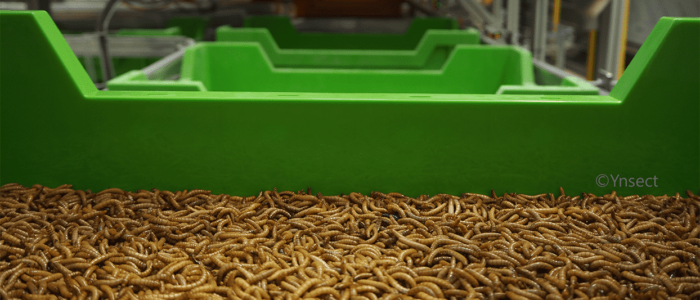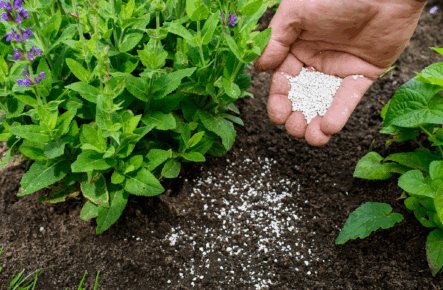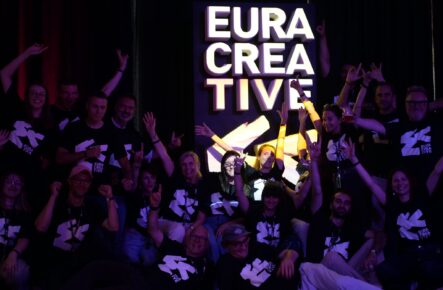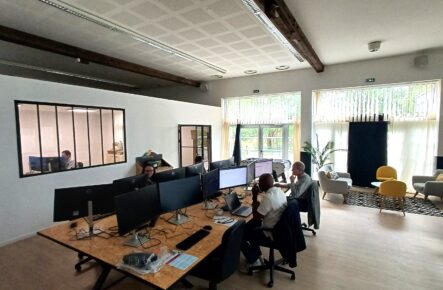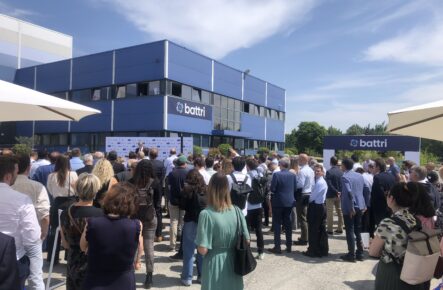Ÿnsect is setting up business in Amiens, in the heart of Europe’s top agricultural area
Created in 2011, at a time of growing worldwide demand for protein, Ÿnsect converts insects into an essential resource for farm animal feed and pet food. For this, Ÿnsect first started by building an initial Fermilière® (vertical farm), called Ÿnsite, making it possible to breed and process Molitor (a common beetle in Europe) into ŸnMeal (the well-known animal protein) on a demonstration scale. Having received lots of pre-sales, Ÿnsect decided to set up its first large-scale industrial site, Ÿnfarm, in the Amiens metropolitan area. “The land offered by the city combines many technical and economic advantages, such as the proximity of our raw material suppliers, a major logistics area, and synergies with the Amiens Nord industrial area, particularly in the supply of technical services and utilities,” says Antoine Hubert, CEO of Ÿnsect. Construction is scheduled to begin in 2019. The company ultimately plans to hire 110 new people. This new unit will extend over 18 hectares to Poulainville and will allow Ÿnsect to keep growing. Within the next few years, Ÿnsect aims to become a leading global supplier of sustainable premium nutrition.
The booming animal protein market
For more than a year, the European Union has allowed fish farms to feed their fish with proteins derived from insect larvae. This is a real opportunity for the French sector, which is experiencing a great boom in the consumption of insect proteins, to become one of the most promising sectors in the labor market. Indeed, according to the latest studies on the growing global demographics, climate change, and the consequences of intensive agriculture, food needs will become increasingly urgent.
- Insects are regularly consumed by 2.5 billion people, or 36% of the current population.
- In early 2018, the world’s population reached more than 7.5 billion people. By 2050, we will total 9 billion (according to estimates).
- To feed the planet, meat production would need to double.
- In the last five years, more than 600 jobs have been created in this sector.
Economic and environmental benefits:
- Only 5 m² needed to product 100 kg of insects (versus 50 m² for 100 kg of beef)
- Insects consume less food and spend less time on the farm
- Much more cost-effective insect production: no need to heat the site (cold-blooded animals)
- Very low environmental impact
Other startups share the market with Ÿnsect
Revolutionizing food is the ambition exhibited by these young and innovative French companies that have entered the insect-derived protein market. In Hauts-de-France, other startups have taken up the bold challenge to produce enough insects to feed livestock and humans alike. One such example is InnovaFeed, which has the first animal protein production site in Cambrai. Last February, the startup announced €15M of capital raised to construct a second site in Somme (to be commissioned in 2019). “It will be one of Europe’s leading insect-derived protein production units for animal feed and, in particular, fish farming,” says Clément Ray, one of the four co-founders of InnovaFeed. Another example in Nord: Minus Farm, the micro-breeding of edible insects, created by Virginie Mixe. The Marcq-en-Barœul-based startup seeks to promote the sustainable integration of edible insect proteins in our food. For now, all Minus Farm production is carried out at Virginie Mixe, in a small laboratory that the company wants to grow in order to satisfy the ever-increasing demand. The sector therefore has strong growth prospects, especially in Hauts-de-France, where there are more and more plentiful and innovative players. Sources: Voix du Nord, L’Usine Nouvelle, Ynsect.com, Les Echos Entre, 20min, France Bleu


